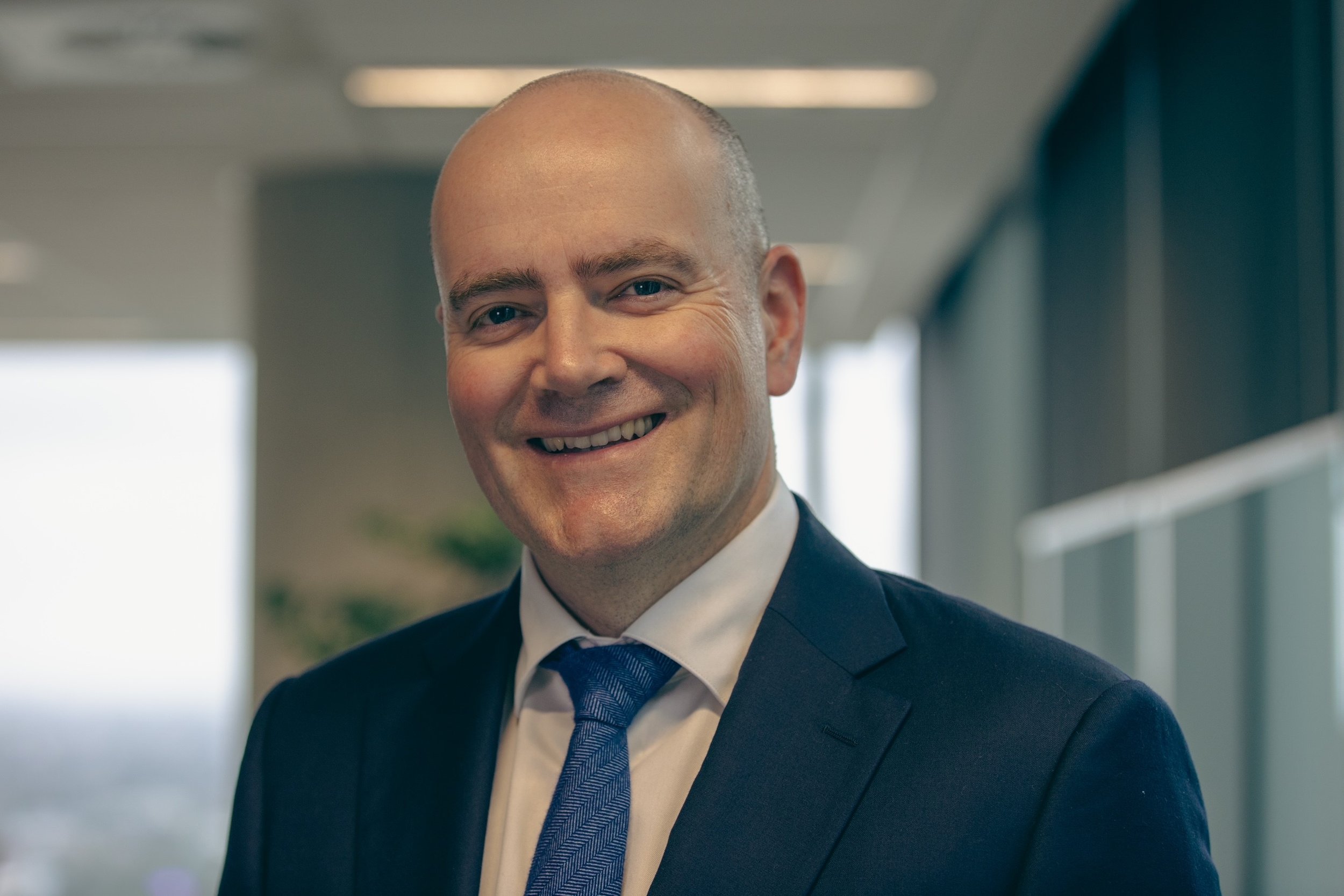Thriving in Uncertainty with Liz Tydd
It was a privilege to talk with Liz Tydd, the Australian Information Commissioner, as she shared the future of the Office of the Australian Information Commissioner or OAIC with us and how their postural organisational changes over the past year have positioned them to be at the forefront of being a contemporary regulator.
It was a privilege to talk with Liz Tydd, the Australian Information Commissioner, as she shared the future of the Office of the Australian Information Commissioner or OAIC with us and how their postural organisational changes over the past year have positioned them to be at the forefront of being a contemporary regulator.
Listen to episode eighteen:
Also available through Apple Podcasts and Spotify:
About this episode:
In this special broadcast edition of our podcast series on Thriving in Uncertainty, Liz takes us through the latest figures on data breaches from their recent report. She explains how an additional dimension of misinformation (e.g., deepfakes) can become an accepted truth in the mind of the audience, highlighting how even the human brain is grappling to adjust to this very real and growing threat and its manifestations.
Liz also shares how the latest data tells us that the information from data breaches across various industries has commonalities in the fact that it is sensitive and valuable information about us that defines who we are and can be used to recreate identities.
The OAIC’s work centres on access to information to promote truth and accountability, particularly in government, but also to promote privacy and protect people from the devastating impacts of misinformation and cybersecurity breaches that result in a loss of identity. To perform this critical work, the OAICs need to have the confidence to operate in this new digital world safely and securely, taking a human-rights-centred approach in a dynamic and ever-changing regulatory environment.
In this enlightening episode, you’ll learn the OAIC’s latest thinking on the eight key elements in ensuring there is a human-rights-centred approach in the AI space and how essential it is for their workforce to be committed to preserving human rights, be curious and work collegially, and how the organisation has developed four pillars to manifest in their culture and operations which are proactive, proportionate, purpose-driven, and people-focussed.
She also explains how the OAIC has a unique vantage point on top of the hill in that they can look at the sectors they regulate, pull out common themes, and inform the guidance.
As a knowledge-based organisation, Liz highlights the critical need for knowledge to be shared internally and several ways that the OAIC are doing that through cross-collaboration teams, cross-professional teams, and communities of practice to share expertise, new approaches and ways of working, and refining skills which enables their organisation to then share that knowledge externally and amplify their messaging.
Liz’s leadership approach of being open to change, developing the ability to respond effectively in a dynamic landscape, and taking a human-rights approach to designing for trust is a masterclass for any leader in leading through change and dealing with complexity in a dynamic environment.
Find out more about this Trailblazer:
Elizabeth Tydd
Australian Information Commissioner
Office of the Australian Information Officer (OAIC)
Elizabeth Tydd took up the position of Australian Information Commissioner in August 2024 for a 5-year term.
Elizabeth joined the Office of the Australian Information Commissioner in February 2024 as Freedom of Information Commissioner after two 5-year terms as the Information Commissioner at the Information and Privacy Commission (IPC) of New South Wales.
Elizabeth’s role at the IPC was to promote public awareness and understanding of the right to access government information in NSW, as well as providing information, support, advice, assistance and training to agencies and the general public.
Elizabeth has occupied a number of statutory decision‑making roles in NSW commissions and tribunals, including deputy president of the Workers Compensation Commission and deputy chairperson of the former Consumer, Trader and Tenancy Tribunal.
Elizabeth has extensive regulatory and governance experience at an executive and board level in a range of jurisdictions and industries, including commercial, not for profit and public sector oversight.
She holds a Bachelor of Laws and Master of Laws from the University of Technology Sydney, as well as postgraduate certificates in executive management and governance together with post graduate qualifications in leadership and policy from Harvard University. Elizabeth possesses expertise in digital government and has written extensively on this subject.
Tune in next week as we speak to a new trailblazer in another episode in our series on Thriving in Uncertainty.
Embracing organisational change – episode two
We hope that you’ve been enjoying our series on embracing organisational change.
In this week’s episode, we are tackling a pivotal change facing organisations today in their quest to gain more efficiency, specifically, how an operating model approach can help achieve operational efficiency and drive better service delivery outcomes to customers.
Grab a coffee and settle in for this tremendous 20min chat!
Listen to episode two:
Also available through Apple Podcasts, Spotify and Google Podcasts:
Dan Bowes, Executive Director of Taxes and Grants Products at Revenue NSW, joins Andy to explain how his team ensures they deliver for their customers. Listen in to hear from Dan how his team overcame challenges during COVID through successful collaboration, the entire team's role in improving customer process outcomes, and his top three tips on how other leaders can deliver efficiently and effectively for their customers.
Download the full transcript of episode two:
Find out more about this Trailblazer:
Dan is Revenue NSW's Executive Director of Taxes & Grants Products, leading the team of 700 people working in Business Taxes, property taxes and duties.
Dan and his teams raise over $35bn of revenue annually and distribute vital grants to support communities and businesses. Dan has a background in banking and process improvement and has previously held business development and strategy roles at Revenue NSW.
Please tune in next week as we talk with Julie Etchells, Chief Human Resources Officer for the Department of Child Safety, Seniors, and Disability Services for the Queensland Government, for our third episode in this series on realising diversity, equity, and inclusion aspirations.
Missed episode one?
Trailblazing with CorbettPrice Podcast - Episode 6
Thank you for joining us for the sixth episode of our podcast series on organisational health and the seven dimensions of wellness. In this episode, we will cover the essential topic of organisational purpose and leadership.
Listen to episode six:
Also available through Apple Podcasts, Spotify and Google Podcasts:
The leadership style of an organisation can profoundly impact an organisation's health, affecting the workplace culture, employee experience, engagement, performance, and organisational agility and resilience.
The prolific global expert in open and digital government and former public servant Pia Andrews joins us as we discuss how public sector professionals must lead and navigate their teams now and in the future.
Hear Pia's thoughts on how we need to get back to servant leadership, how any leader's first strategy should be to slow things down, and how human-centered design approaches require you to come from a position of being your best human in the first place.
Listen to also hear Pia share three practices from her background in Gung Fu and Chan Buddhism martial arts that play an important role in her work and career every day.
Download the full transcript of episode six (with references):
Find out more about this Trailblazer:
Pia Andrews is an open government, digital transformation and data geek who has been trying to make the world a better place for 20 years. She usually works within the (public sector) machine to transform public services, policies and culture through greater transparency, democratic engagement, citizen-centric design, open data, emerging technologies and real, pragmatic actual innovation in the public sector and beyond. She believes that tech culture has a huge role to play in achieving better policy planning, outcomes, public engagement and a better public service all round.
She is also trying to do her part in establishing greater public benefit from publicly funded data, software and research. Pia was recognised in 2018 and 2019 as one of the global top 20 most Influential in Digital Government and was awarded as one of the Top 100 Most Influential Women in Australia for 2014. Pia has also studied martial arts since 1990, and brings the philosophies and practices of Gung Fu and Chan Buddhism into her work every day.
Pia is currently taking something of a public sector sabbatical, working as a Strategic Advisor to the Public Sector in AWS. She is in a newly formed team made up of experienced public servants who provide futures oriented policy and outcomes focused advice, support, exploration and experimentation, to agencies and departments across Australia, New Zealand and Oceania.
In 2023, Pia joined Apolitical’s Advisory Council on 21st Century Government, where some of the world’s most distinguished government leaders, innovators, and thinkers have come together to help accelerate Apolitical’s mission to help build 21st century governments that work for people and the planet.
Web: pipka.org
LinkedIn: www.linkedin.com/in/pia-andrews/
The Mandarin articles: www.themandarin.com.au/author/pia-waughgmail-com/
Tune in next week as we talk with David Powell on our final dimension of organisational health – recreational health, learning and development.
Missed an episode?
Trailblazing with CorbettPrice Podcast - Episode 2
Welcome back to our second episode in the Trailblazing with CorbettPrice series on organisational health. This episode will explore the 2nd dimension of organisational health: Mental – organisational agility and resilience.
Listen to episode two:
Also available through Apple Podcasts, Spotify and Google Podcasts:
The past few years have been tough on organisations with constant uncertainty. As these shocks grow in numbers and complexity, organisations must focus beyond crisis responses to build resilience to survive now and into the future.
Scott Johnston, Deputy Secretary of Revenue, New South Wales, Chief Commissioner of State Revenue, and Commissioner of Fines Administration, joins Andy in this episode to discuss how Revenue NSW has applied agile principles to transform their organisation to become adaptive and responsive now and in the future. Hear how Scott manages to be a regulator while also delivering excellent customer service to Revenue’s three-and-a-half-million customers, his thoughts on empowering the whole organisation to innovate, his top tips for how leaders can respond to changing customer priorities, and much more.
Download the full transcript of episode two:
Find out more about this Trailblazer:
Scott Johnston is a highly experienced senior leader with a career spanning the Australian and United Kingdom public sectors.
An internationally recognised statistician specialising in economic analysis, his work at the UK Office of National Statistics guided key decision making for the Organisation for Economic Cooperation and Development and European Union.
Scott joined the Public Service Commission in June 2014 where he held the roles of Director Workforce Information Branch and Assistant Commissioner, Performance and Analytics Division.
He then moved on to the NSW Public Service Commission as Acting Public Service Commissioner, leading the NSW Government’s agenda - driving diversity, work of the future and reform across the sector. In April 2020, Scott was appointed to his current role of Deputy Secretary, Revenue NSW, Chief Commissioner of State Revenue and Commissioner of Fines Administration.
Since joining Revenue NSW, Scott has focused on providing flexibility and an improved customer experience for Revenue’s 3.5 million annual customers, with a focus on digital transformation and supporting the State’s most vulnerable customers. Over the past two years Revenue NSW has become sought after for its automation achievements, collaboration skills, innovation, and customer centred design.
Scott is passionate about shaping future workforce strategy through evidence-based decision making, innovation, diversity, and inclusion, and building digital capability.
LinkedIn: www.linkedin.com/in/scott-johnston222/









